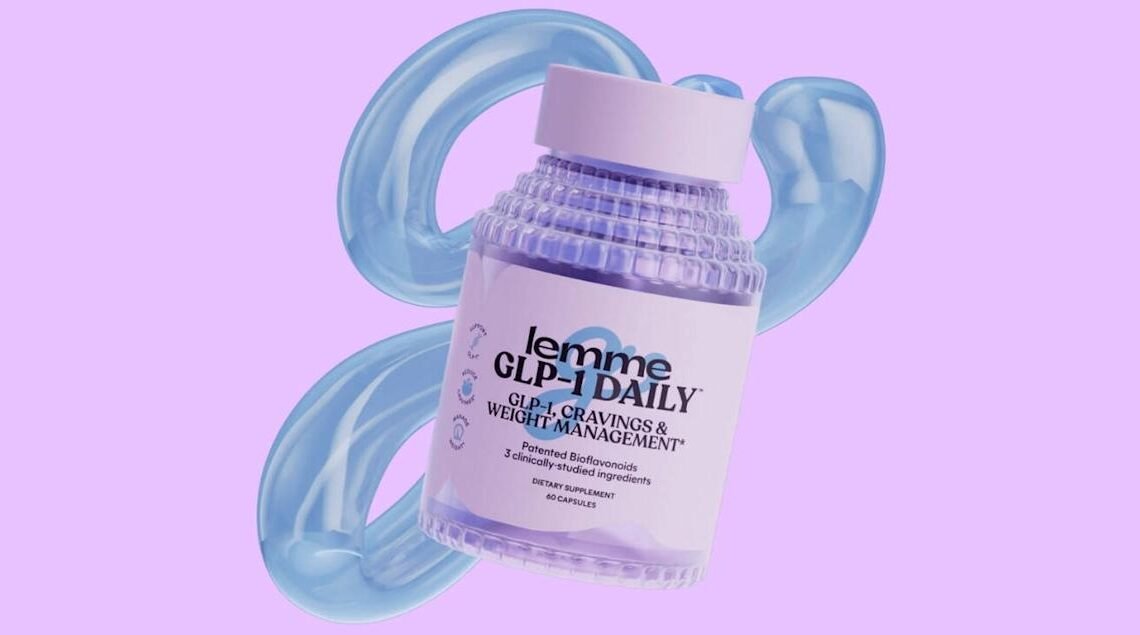In the ever-expanding universe of celebrity wellness brands, Lemme, founded by Kourtney Kardashian Barker, has taken center stage with a glitter-drenched approach to health. Marketed with pastel aesthetics and self-care rhetoric, Lemme’s line of supplements promises everything from better sleep to sharper focus. But the brand’s latest leap into the weight loss arena—specifically with its GLP-1 support gummy—should give us all serious pause.
GLP-1 receptor agonists like Ozempic, Wegovy, and Mounjaro have become household names for their effectiveness in aiding weight loss and managing Type 2 diabetes. However, they are also potent prescription drugs with serious medical implications. Lemme’s decision to enter this space with a supplement that ostensibly supports GLP-1 function—without being a prescription, and without regulatory scrutiny—is not just misleading. It’s dangerously unethical.
Exploiting a Medical Trend for Profit
Let’s be clear: GLP-1 medications are not candy. They are powerful pharmaceuticals originally designed to treat diabetes and are now prescribed off-label for obesity. While these drugs can be lifesaving for some, they come with a host of side effects, including nausea, vomiting, gallbladder disease, and potential thyroid tumors. They are not casual wellness products to be normalized with a cute, chewable gummy.
And yet, Lemme’s “GLP-1 Support” product does just that. While it does not contain actual GLP-1 drugs, it leverages the trend by name. Its marketing intentionally creates a halo of legitimacy around the idea that this gummy is somehow part of that clinical, results-oriented world. That is misleading by design.
By framing the product around “GLP-1 support,” the brand is capitalizing on public confusion. It’s a sleight of hand: associating with a powerful drug class without needing to deliver the efficacy, navigate regulation, or carry the legal liability of actually producing pharmaceuticals. This bait-and-switch tactic is not only ethically questionable—it’s exploitative.
The Weaponization of Wellness Culture
Lemme’s marketing isn’t just dishonest—it’s manipulative in a way that’s disturbingly common in the influencer-wellness industrial complex. Using vague language like “supports healthy appetite” and “glucose metabolism,” the brand cloaks its claims in terms that sound scientific but are legally unregulated. This isn’t just puffery—it’s pseudoscience.
Worse still, it targets a vulnerable demographic: women, especially young women, who are constantly bombarded with toxic beauty ideals and weight loss pressures. Kourtney Kardashian, a celebrity with millions of followers and cultural clout, is not unaware of her influence. She knows that her endorsement can drive behavior—and she’s using that power to sell a product that teeters on the edge of medical cosplay.
The decision to invoke GLP-1 in the name of a dietary supplement isn’t accidental. It’s a marketing strategy that deliberately blurs the line between medicine and wellness, science and aesthetic aspiration. The result? Consumers are misled into thinking they are taking something with clinical benefits when they are, in fact, consuming little more than a glorified multivitamin.
Regulatory Loopholes and Dangerous Precedent
Dietary supplements are not required to undergo the same scrutiny as drugs by the U.S. Food and Drug Administration. This means companies like Lemme can make vague health claims without providing robust scientific evidence. They are not required to conduct clinical trials, nor must they prove efficacy before going to market. That’s a major loophole—and Lemme is driving a wellness-branded freight train right through it.
The danger here is not theoretical. It sets a disturbing precedent where brands co-opt serious medical treatments for profit, muddying public understanding in the process. If other companies follow suit, we could see a proliferation of “Ozempic-inspired” or “Mounjaro-adjacent” supplements flooding the market—none of which offer the therapeutic effect, but all of which capitalize on consumer insecurity.
This isn’t just unethical—it’s potentially harmful. People might skip real medical interventions in favor of placebo products wrapped in slick branding. Worse, they might mix actual prescriptions with poorly researched supplements, leading to unforeseen health risks.
The Kardashian Effect: A Pattern of Irresponsibility
Kourtney Kardashian is not the first in her family to court controversy over health-related products. From appetite suppressant lollipops to detox teas, the Kardashian-Jenner family has a long history of promoting questionable weight loss tools. These campaigns aren’t just tone-deaf—they’re actively harmful, especially to impressionable audiences who idolize these celebrities.
With Lemme’s GLP-1 product, the cycle continues. Kourtney is now using her wellness brand to launder diet culture through the language of “balance” and “health.” But make no mistake: this isn’t about health. It’s about monetizing insecurity, capitalizing on confusion, and masquerading commercialism as care.
What We Deserve From “Wellness” Brands
If the wellness industry wants to maintain any credibility, it must draw a clear line between evidence-based health promotion and misleading marketing. Brands should not be allowed to mimic medical treatments without the rigorous validation and oversight that medicine requires. Doing so turns health into performance and treatment into trend.
What consumers deserve are transparent claims, honest labeling, and products that do not prey on their fears and insecurities. What they are getting from Lemme is something far darker: the commodification of a medical movement wrapped in the pastel veneer of “self-love.
Final Thoughts: We Need to Say “Lemme Stop You Right There”
Wellness isn’t inherently bad. When done ethically and transparently, it can empower people to take better care of themselves. But brands like Lemme undermine that potential. They poison the well with gimmicks and deception, leading people to believe they are doing something good for themselves when, in truth, they’re just lining someone else’s pockets.
Kourtney Kardashian Barker may have built Lemme on the promise of “natural, clean” self-care—but when it comes to their GLP-1 product, there’s nothing clean about it. It’s a masterclass in marketing manipulation and an ethical failure in plain sight.
Consumers deserve better. And it’s time we demand it.
I personally use much cheaper multivitamins and blends from Amazon or my local drug store and call it a day.
They’re about $12-$14 for 90… a far cry from the absurd prices of Lemme.

Link here.
I personally like Nature’s Bounty and find them decently priced and delicious.




